CRM Solutions for the Retail Industry
Share Blog

Retail CRM in 2025: The Key to Smarter Customer Management & Growth
Did you know that 53% of companies claim enhanced customer satisfaction and retention when using CRM tools? And that 80% of customers are more likely to purchase when brands provide them with personalized experiences.
In the highly competitive retail sector of today, knowing the tastes and behaviors of customers is important for success. A Customer Relationship Management (CRM) system aids retailers in monitoring customer interactions, purchases, and preferences, and allows them to design personalized shopping experiences.
With insights from Retail CRM software, businesses can manage inventory, target promotions, and enhance customer service, ensuring a seamless shopping journey. A well-implemented CRM doesn’t just meet customer expectations—it exceeds them, setting the stage for long-term business growth and customer loyalty.
In this blog, we’ll explore the importance of CRM in the retail industry, its benefits, and the best retail CRM solutions available today.
What is Retail CRM?
Retail CRM software is used to enable businesses to understand and interact with customers by monitoring their likes, buying habits, and loyalty trends. It allows retailers to:
✔ Design targeted offers
✔ Provide customized suggestions
✔ Enhance customer care and interaction
✔ Monitor customer interactions by channels
For big retail chains to small enterprises, a CRM system consolidates customer information, enabling businesses to make informed decisions that drive sales, marketing, and customer relationships.
Key Stats:
✅ 58% of firms implementing CRM attest to quicker decision-making
✅ 54% witness operational efficiency improvement
✅ 53% benefit from improved coordination among departments
Benefits of CRM for Retail
1. Tailored Shopping Experiences
Customer data is analyzed by retail CRM software to provide tailored product suggestions, turning one-size-fits-all interactions into memorable, interactive experiences.
2. Improved Customer Retention
A CRM fosters customer relationships with loyalty programs, targeted promotions, and proactive communication, promoting repeat purchases and increased engagement.
3. Data-Driven Decision-Making
With in-depth customer insights, retailers can:
✔ Detect sales trends
✔ Maximize marketing campaigns
✔ Enhance product offerings
Companies that use CRM software experience a 29% sales increase and a 34% increase in sales productivity.
4. Effective Customer Service
CRM facilitates quicker problem-solving by monitoring previous purchases, complaints, and preferences so that customer care teams provide instant and effective service.
5. Improved Sales & Revenue Growth
By discovering cross-sell and up-sell opportunities, CRM systems assist sales teams with recommending appropriate products based on a purchase history, eventually increasing
Best CRM for Retail
There are several CRM solutions built in the retail sector. Here are five best CRM for retail platforms that stand out for retail businesses:
1. Salesforce
Known for its flexibility and powerful integrations, Salesforce enables retailers to unify online and offline experiences and manage everything from marketing to customer service. With advanced analytics and automation, it helps retailers personalize interactions and streamline operations for a seamless customer journey.
Key Features
- Unified Experience: Combines all customer interactions for a consistent shopping journey across platforms.
- Marketing Automation: Tools for targeted campaigns to effectively reach the right audience.
- Customer Service Management: Simplifies support processes for quicker issue resolution and higher satisfaction.
- Analytics and Reporting: Offers insights into customer behavior and sales trends for better decisions.
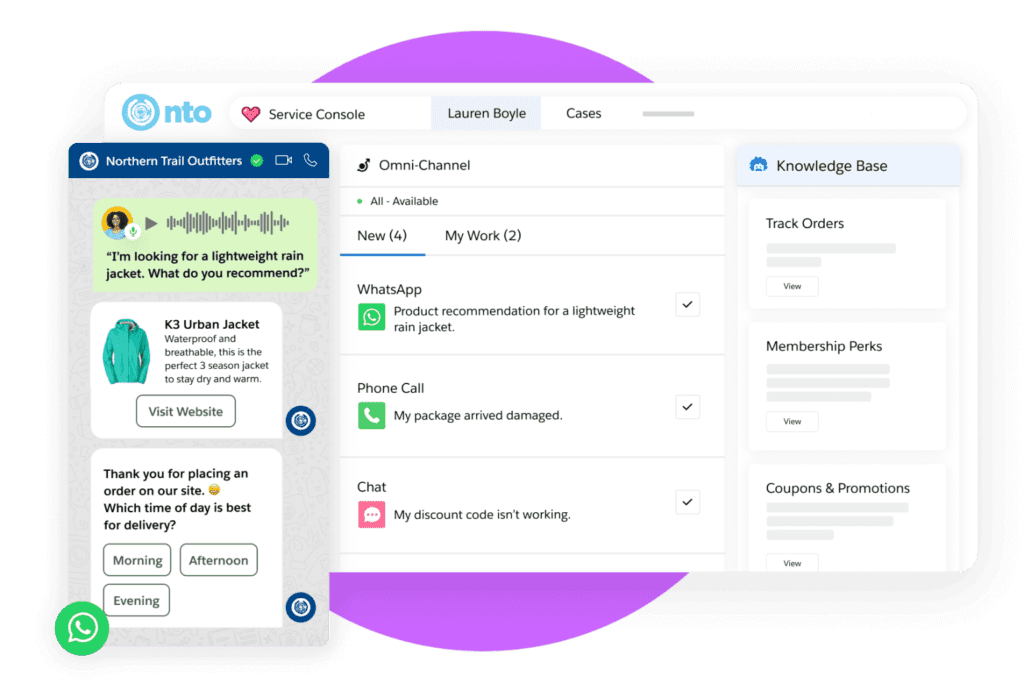
2. Zoho CRM
With a user-friendly interface and very strong integration capabilities, it helps retailers streamline operations and improve customer interactions across. It is affordable and rich feature offers omnichannel capabilities, analytics, and customization options of which retailers of all sizes favor Zoho CRM.
Key Features
- Customization: Lets retailers adjust the CRM to meet their unique needs.
- Automation: Reduces repetitive tasks like follow-ups and lead assignments.
- Easy Reports: Gives clear reports to track sales and customer engagement.
- Budget-Friendly: Offers affordable plans suitable for all business sizes.
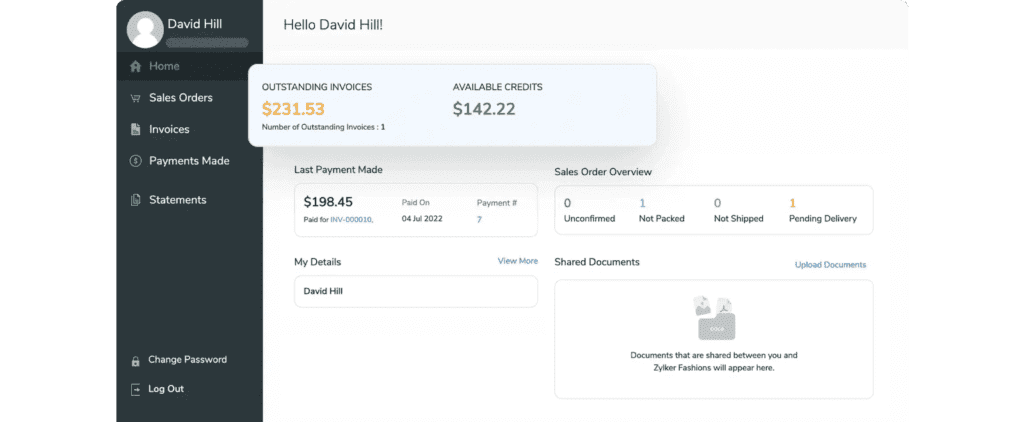
3. HubSpot CRM
With a friendly interface and powerful tools, HubSpot CRM is excellent for smaller retail businesses looking to streamline marketing, sales, and customer service without high learning curves. It offers integration with popular apps and helps retailers manage customer interaction efficiently.
Key Features
- Easy Interface: Simple design that makes it easy for teams to use without much training.
- Lead Tracking: Helps keep track of leads through the sales process so no opportunities are missed.
- Email Tools: Provides features to create and send targeted emails to engage customers.
- App Connections: Links with different apps to make workflows smoother and more efficient.
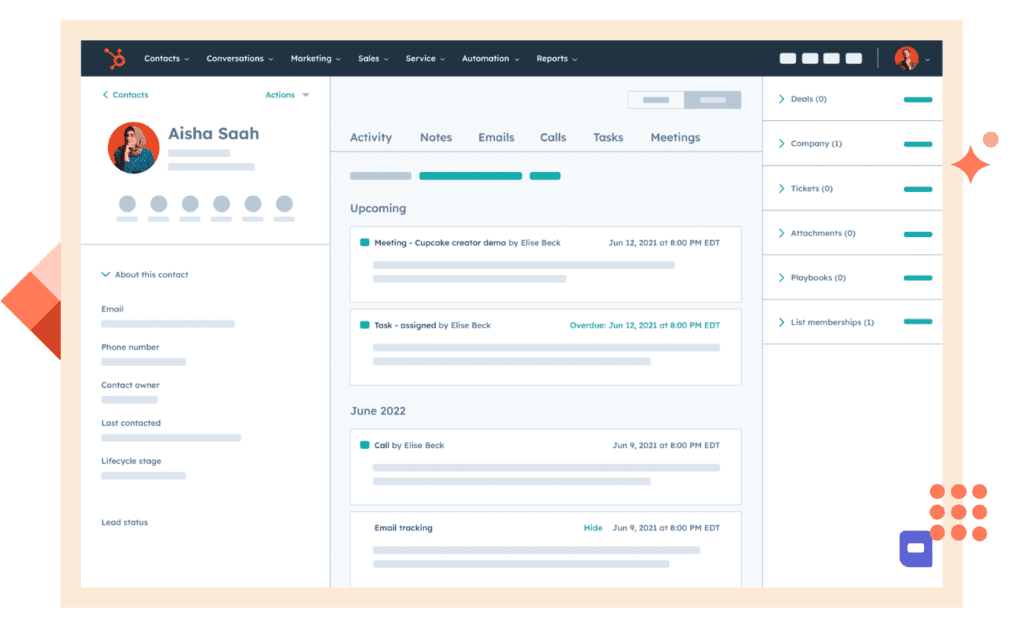
4. SAP Customer Experience (CX)
This CRM solution is perfect for larger retailers with complex retail customer management software needs. SAP CX offers advanced analytics, loyalty management, and customer engagement features tailored for retail.
Key Features
- Complete Customer View: Combines data for a full understanding of customers.
- Targeted Marketing: Creates strategies based on how customers behave.
- Loyalty Programs: Provides tools to build successful loyalty programs.
- In-Depth Analytics: Offers strong tools for detailed performance insights.
- Consistent Experience: Brings together all customer interactions for a smooth experience
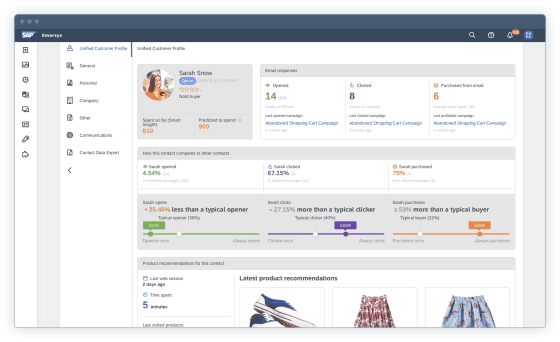
5. Microsoft Dynamics 365 for Retail
Dynamics 365 combines CRM and ERP functions, allowing retailers to manage everything from supply chains to customer relationships in one platform. Its integration with Microsoft’s other tools makes it a versatile choice.
Key Features
- Centralized Data: Gathers customer information in one place.
- Targeted Marketing: Allows focused marketing for different customer groups.
- Real-Time Analytics: Provides current data for better decision-making.
- Sales and Service Link: Connects sales and customer support for easier processes.
- Easy Customization: Adjusts to fit specific business needs and workflows.
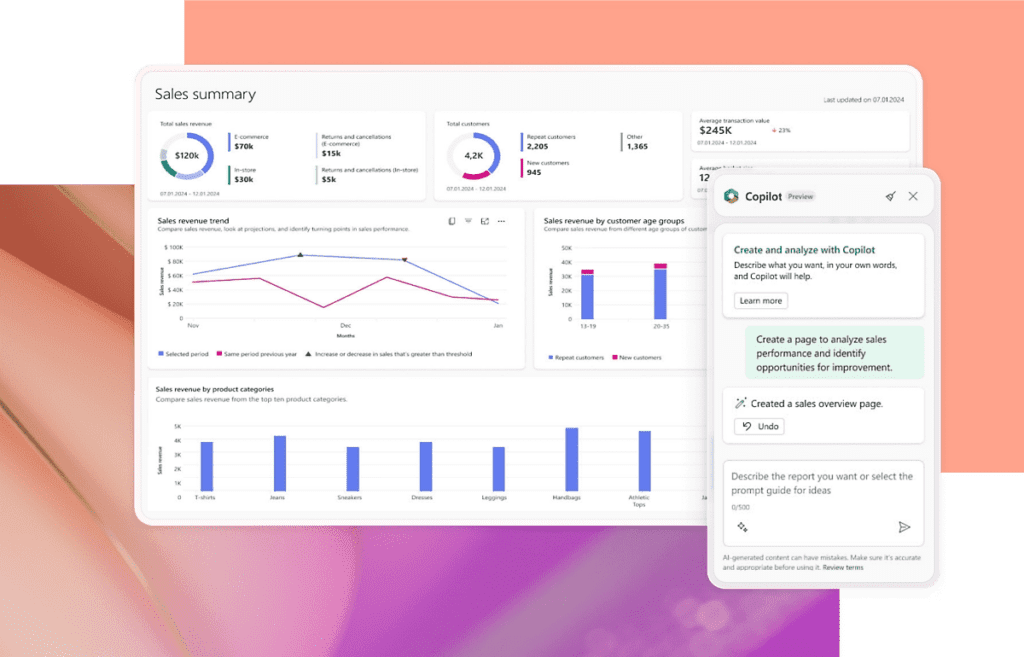
Retail CRM Implementation?
Implementing a Retail CRM system successfully entails:
1️⃣ Business Needs Assessment – Determining specific CRM needs
2️⃣ Choosing the Right CRM Software – Selecting a solution that supports business objectives
3️⃣ Customizing & Configuring the System – Establishing workflows and automation
4️⃣ Data Migration – Migrating customer data without loss or duplication
5️⃣ Staff Training – Ensuring employees know how to use the system effectively
6️⃣ Continuous Optimization – Periodic updates, tracking, and strategy enhancements
📌 Fact: Companies that use CRM see as much as a 300% rise in conversion rates as a result of improved customer tracking and interaction.
Conclusion
Retail CRM software enables companies to create individualized, focused customer relationships while enhancing marketing, sales, and service processes.
Top solutions such as Salesforce, Zoho, HubSpot, SAP CX, and Microsoft Dynamics 365 provide robust capabilities to enable retailers to monitor customer interactions, maximize promotions, and drive business growth.
🚀 Time to elevate your customer relationships and sales approach!
📩 Ready to adopt the best Retail CRM for your company? Reach out to us today!
